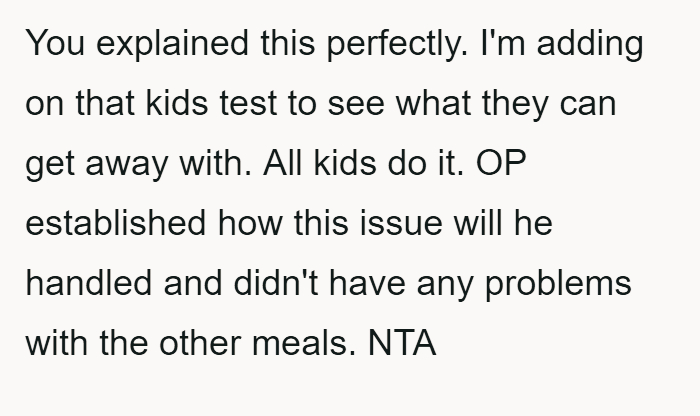‘AITA for letting my sibling’s children go hungry for a bit?’

A relative, who is on the chemical imbalance range and has ADHD, consented to really focus on their bereft sibling’s youngsters while the sibling goes for work. The guardian has a severe dinner arranging schedule, with feasts planned a long time ahead of time. On the primary day of dealing with the youngsters, the parental figure arranged feasts that the children didn’t appreciate. The youngsters were permitted to skip lunch and supper, selecting to play on their tablets all things considered. By the night, they were ravenous and had a portion of the recently pre-arranged feast, however they just picked at it.
The next day, a similar circumstance happened with the children at first declining to have the lunch given, yet they later ate the dinner subsequent to warming it. Thus, the kids in the end ate the dinners that were ready as per the parental figure’s timetable, with the exception of a couple of things like pumpkin, which they despised.
At the point when the sibling returned and was educated about the circumstance, he was vexed. He felt that the guardian’s methodology, which prompted the children going hungry until they consented to eat the dinners, was unseemly. The guardian had recommended buying cheap food to keep away from the kids feeling hungry, however the sibling had recently declined this choice because of worries about indulging them. Thus, the sibling considered the guardian an “poop hole” for permitting his youngsters to go hungry, communicating dissatisfaction over the treatment of the feasts.
Read for more info Reddit

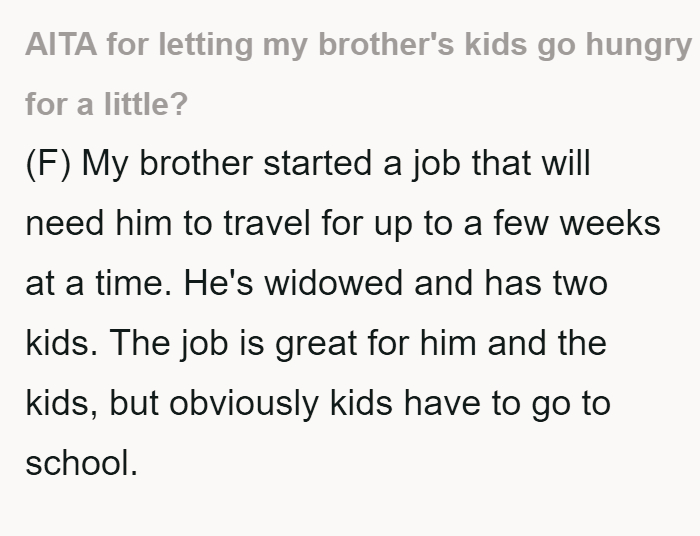
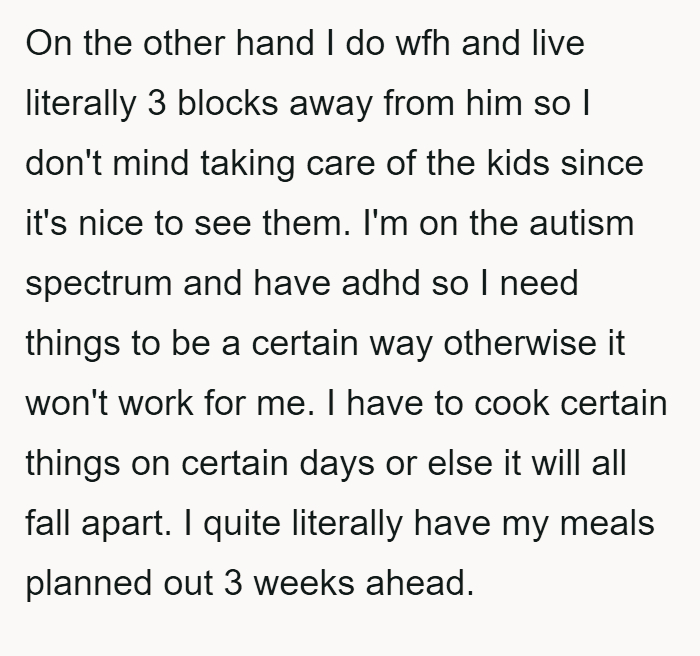

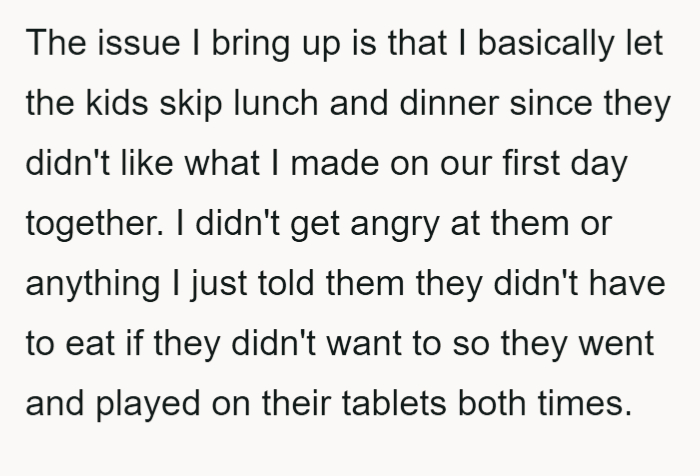

In a new conversation with respect to childcare and feast planning, the discussion focuses on the propriety of a singular’s way to deal with dealing with a severe dinner plan for their kin’s kids. The person, who has a problem expecting adherence to a particular everyday practice, ended up in a difficult circumstance where they were liable for taking care of the kids. This obligation included adhering to a foreordained dinner plan, without any deviations permitted.
The singular’s methodology was to guarantee that dinners were given by the laid out plan, regardless of whether it implied warming food late around evening time when the children got ravenous. This methodology was executed to regard the dietary limitations and stay away from cheap food, which was a condition set by the kin. The strategy utilized guaranteed that the kids were taken care of without turning to inexpensive food choices, lining up with the first solicitation.
Be that as it may, there were concerns raised about whether this inflexible adherence to the feast plan could adversely affect the kids. A few contended that the severe standards, which ruled out adaptability, could be irrational given the youngsters’ inclinations. The analysis zeroed in on whether the absence of decision in feasts may be viewed as out of line or brutal.
Then again, allies of the individual brought up that the individual was chipping in their time and work to really focus on the youngsters and that keeping up with the set feast plan was significant because of their own condition. They accentuated that the singular’s methodology was both circumspect and compelling, as it regarded the kin’s solicitation and stayed away from cheap food.
All in all, the discussion features the pressure between following relentless schedules because of individual requirements and obliging the necessities and inclinations of youngsters. The circumstance highlights the intricacies engaged with adjusting adherence to dietary necessities with giving adaptable consideration to kids.
We should figure it out.
badkitty637 writes:
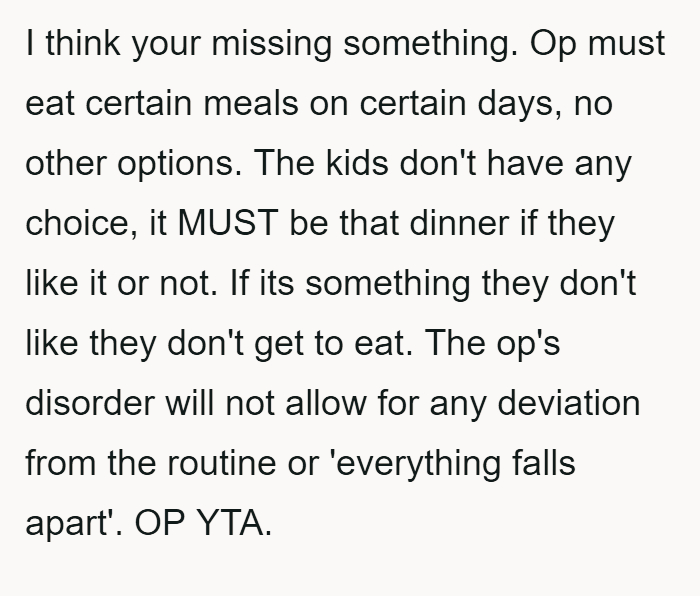
formidableopponent writes:
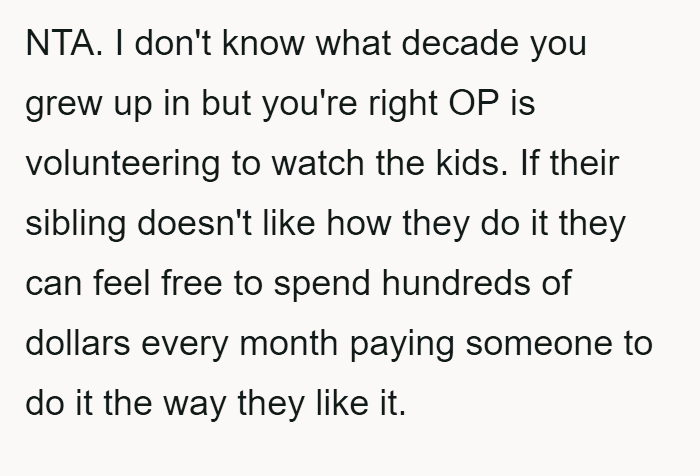
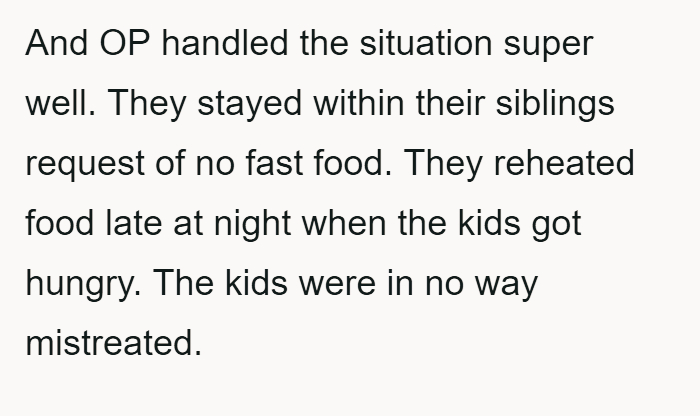
dixielandinsanity writes:
